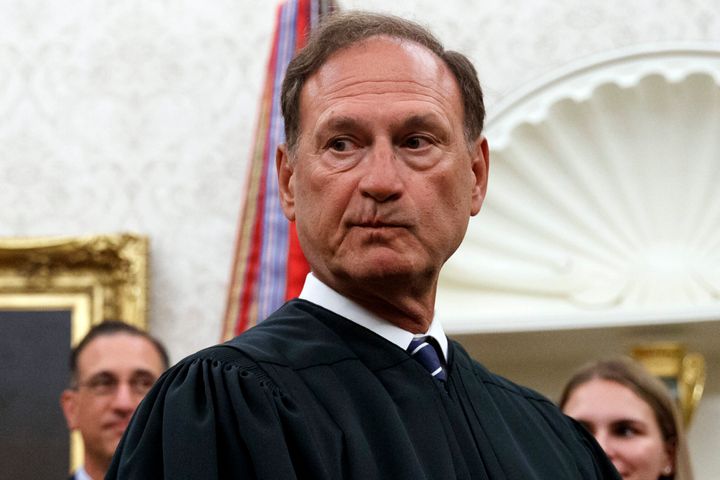The decision by the Supreme Court’s conservative majority Thursday to allow South Carolina to proceed with its gerrymandered map led to a blistering dissent by Justice Elena Kagan, who argued that the new map was designed to weakens Black voters’ influence.
The 6-3 ruling, led by conservative Justice Samuel Alito, overturns a lower court decision made last year that concluded Republicans in South Carolina had illegally used race to gerrymander the state’s 1st Congressional District. In ordering the state legislature to redraw its map, the three-judge federal district court panel said that the GOP’s attempt to move Black voters out of the district and white voters in amounted to a “bleaching” of the district.
By reversing the lower court’s decision, Kagan said that the Supreme Court’s majority “goes seriously wrong.”
“The proper response to this case is not to throw up novel roadblocks enabling South Carolina to continue dividing citizens along racial lines,” the liberal justice wrote. “It is to respect the plausible — no, the more than plausible — findings of the District Court that the State engaged in race-based districting. And to tell the State that it must redraw District 1, this time without targeting African-American citizens.”
South Carolina’s decision to move 60% of Charleston County’s Black residents from the 1st Congressional District’s Charleston County into its 6th Congressional District was, Alito said, motivated by politics rather than race. The complaint brought by the South Carolina State Conference of the NAACP relied on “circumstantial” evidence to argue the maps were racially gerrymandered on purpose, he wrote.
But Kagan refused to believe that the South Carolina GOP’s map’s impact on Black voters was an unintended consequence of partisan gerrymandering, given the amount of racial demographic data lawmakers had when drawing the lines.

“If calling out a racial gerrymander ‘accus[es]’ a State of a grave wrong, so be it. This Court is not supposed to be so fearful of telling discriminators, including States, to stop discriminating,” Kagan wrote. “In other recent decisions, the Court has prided itself on halting race-based decision-making wherever it arises – even though serving far more commendable goals than partisan advantage. It is not the ordinary thing to agonize so much about giving ‘offens[e]’ to a discriminating State.”
Kagan’s dissent was backed by liberal justices Sonia Sotomayor and Ketanji Brown Jackson. Alito, who has been subject to media scrutiny over recent revelations that controversial flags have been flown at two of his homes, wrote that there is “no substance to the dissent’s attacks.”
In 2019, the Supreme Court ruled that federal courts cannot adjudicate claims of partisan gerrymandering, concluding that the Constitution has nothing to say about the matter. Since that ruling, states accused of drawing racially segregated electoral maps need to show that they only relied on partisan information — not racial demographic data — when redistricting.
In her dissent, Kagan accused South Carolina Republicans of using race to determine their new congressional districts while hiding behind the claim of strictly partisan gerrymandering. By allowing the state’s map to proceed, she said, the Supreme Court has effectively greenlit other lawmakers to “use race as a proxy to achieve partisan ends,” and even to “straight-up suppress the electoral influence of minority voters.”
“Go right ahead, this Court says to States today. Go ahead, though you have no recognized justification for using race, such as to comply with statutes ensuring equal voting rights,” Kagan wrote. “Go ahead, though you are (at best) using race as a short-cut to bring about partisan gains – to elect more Republicans in one case, more Democrats in another. It will be easy enough to cover your tracks in the end: Just raise a ‘possibility’ of non-race-based decision-making, and it will be ‘dispositive.’”
“And so this ‘odious’ practice of sorting citizens, build on racial generalizations and exploiting racial divisions, will continue,” she continued. “In the electoral sphere especially, where ‘ugly patterns of pervasive racial discrimination’ have so long governed, we should demand better — of ourselves, of our political representatives, and most of all of this Court. Respectfully, I dissent.”
Disclaimer: The copyright of this article belongs to the original author. Reposting this article is solely for the purpose of information dissemination and does not constitute any investment advice. If there is any infringement, please contact us immediately. We will make corrections or deletions as necessary. Thank you.
